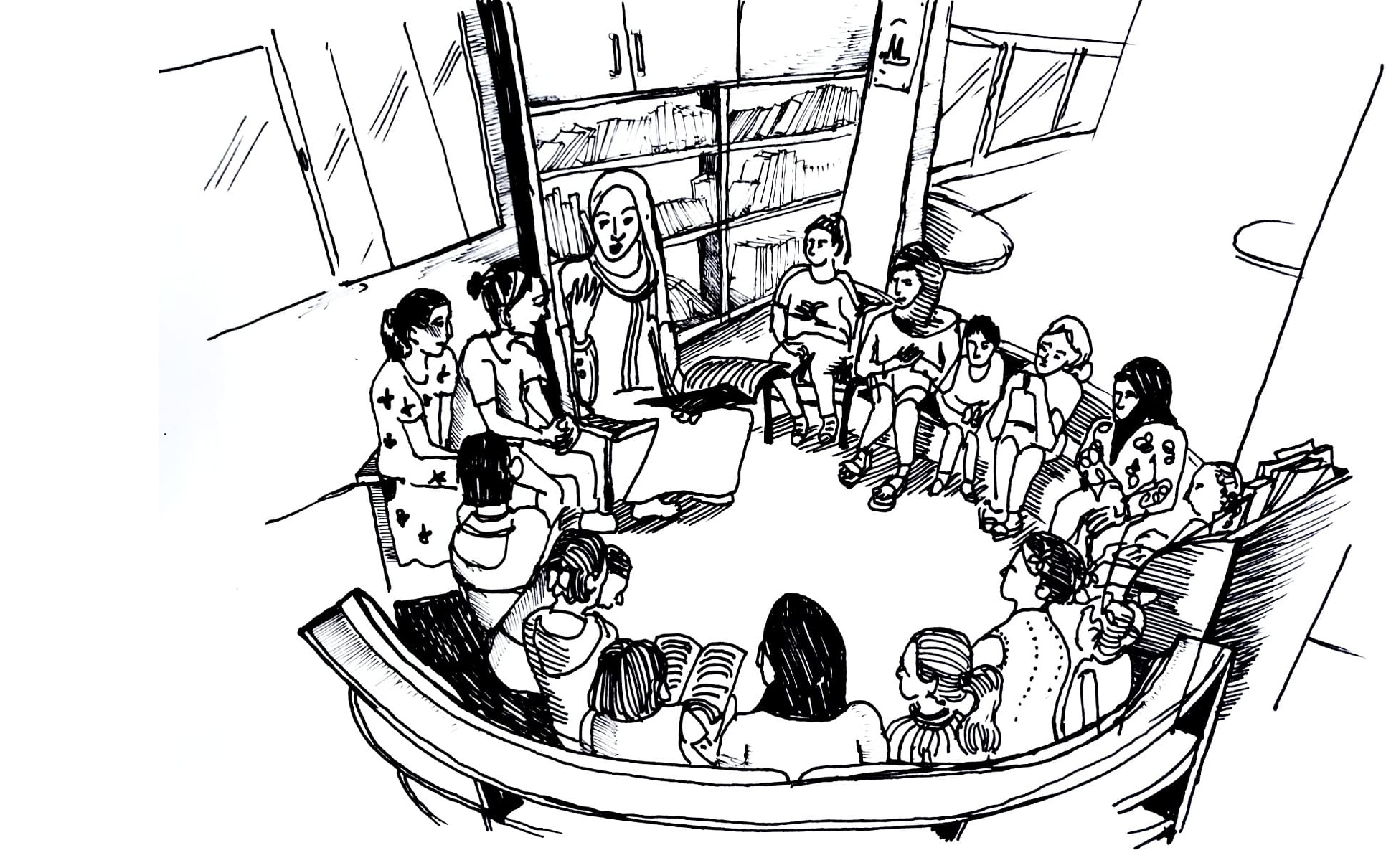 READING IN GAZA
is an urgent response to the destruction of books and reading in Gaza.
A destruction that leads to another: the destruction of the very condition
of being a reader, now subject to a war regime that no longer recognizes
law because it no longer recognizes limits.
READING IN GAZA
is an urgent response to the destruction of books and reading in Gaza.
A destruction that leads to another: the destruction of the very condition
of being a reader, now subject to a war regime that no longer recognizes
law because it no longer recognizes limits.
All types of libraries and archives —in schools, cultural centers,
municipal, university, and historical buildings—as well as publishing
houses, printing presses, bookstores, and literary cafés were massively
and systematically targeted in Gaza starting from the very week following
the massacres of October 7. And it has never stopped since. Tens of
thousands of books, texts, written documents and works have disappeared.
Press collections, archival records, manuscripts and other heritage
holdings, children's books, school and university textbooks, musical
scores, poems—are either gone or currently being destroyed in the ruins
of buildings that have been bombed or mined.
Libraries and archive centers have never been merely collections of books and
writings
gathered for
study or preservation. They have always been spaces of reading and writing that,
especially
in
times of conflict, can foster a social and global dynamic toward peace. To destroy
books,
writings
and reading in Gaza is, therefore, to deliberately prevent the conditions for a
return to
peace
for civilian populations on both sides of the divide.
Libraries and archive centers have never been merely collections of
books and writings gathered for study or preservation. They have always
been spaces of reading and writing that, especially in times of conflict,
can foster a social and global dynamic toward peace. To destroy books,
writings and reading in Gaza is, therefore, to deliberately prevent the
conditions for a return to peace for civilian populations on both
sides of the divide.
Beyond the heritage value of the buildings and collections covered by
the Hague Convention for the Protection of Cultural Property, libraries
and archive centers are also living spaces meant to shelter the most
vulnerable. Books and other writings are housed within these ‘unarmed
buildings,’ which can serve as shelters for refugees. And this is why
they must also be protected. Protecting the hospitality—all forms of
hospitality—offered by books, writings, and reading.
READING in GAZA therefore unconditionally stands on the side of
peace
and the civilian populations in Gaza whose living environment is being
totally destroyed. The destruction of books and writings aims to reach
people down to their very humanity, a humanity that is, however, the
same in Gaza and beyond Gaza.
Originally, the READING IN GAZA project was born out of an interest in
reading, books, all other kinds of writings, and all types of possible
uses of them—in libraries, archive centers, universities, bookstores,
schools, publishing houses, and printing presses.